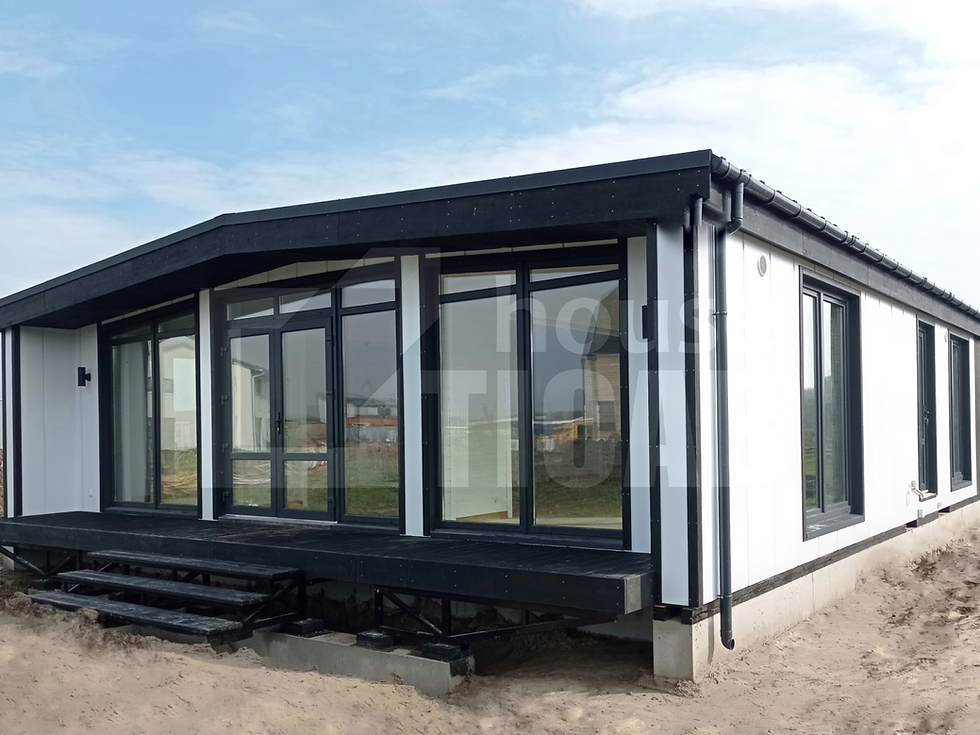Advantages and Disadvantages of Modular Homes: Is It Worth Investing in Modern Housing?
- TICAB Marketing
- Aug 29, 2025
- 3 min read

Modular homes are becoming increasingly popular across Europe and the UK. This modern housing format combines construction speed, comfort, energy efficiency, and an affordable price. However, like any technology, modular homes have their advantages and drawbacks. In this article, we will explore all aspects of this type of housing to help you make an informed decision.
What Is a Modular Home?
A modular home is a dwelling assembled from prefabricated modules produced in a factory. These modules are then transported to the site and installed on a prepared foundation. This method shortens construction time and ensures high quality, since all elements are manufactured in controlled conditions.
Advantages of Modular Homes
1. Fast Construction
One of the main advantages is speed. A modular home can be installed within just a few months. While a traditional house may take over a year to build, a modular project can be completed—from design to move-in—in as little as 3–5 months.
2. Energy Efficiency
Modern modular homes use energy-saving materials and technologies: insulation, triple-glazed windows, and ventilation with heat recovery. This significantly reduces heating and cooling costs.
3. High Quality Thanks to Factory Production
Modules are produced in controlled factory conditions, which eliminates construction errors caused by weather or human factors. All elements have precise dimensions, tight joints, and long durability.
4. Flexible Layouts
Modular homes can be tailored to different needs:
a family home with several bedrooms
a compact house for a couple or single person
a home with a terrace, garage, sauna, or office
5. Scalability and Expansion
A modular home can easily be expanded. If your family grows in the future, you can add new modules and increase the living space.
6. Affordable Cost
Building a modular home is cheaper than a traditional one because it requires less time, labour, and materials.
7. Eco-Friendliness
Module production requires fewer resources, and the use of wood and modern insulation materials makes modular housing more environmentally friendly.
How TICAB HOUSE Overcomes Common Disadvantages
1. Delivery and Installation Anywhere in Europe
TICAB HOUSE has its own logistics network and reliable transport partners across Europe. We deliver homes even to remote or hard-to-access areas, using low-bed trailers and mobile cranes. In cases where large-truck access is limited, we also offer modular panel construction to simplify transport.
2. Proven Reliability and Durability
Our modular homes are manufactured according to European standards with certified materials. They withstand temperature fluctuations, humidity, and strong winds. TICAB HOUSE provides warranties on the frame and key structural elements, ensuring your home matches the durability of traditional houses.
3. Flexible Layouts and Future Expansion
We design homes to grow with you. For example, you can start with a compact 18m² Tiny House and later add a bedroom, office, or terrace. This allows you to invest gradually without overpaying upfront.
4. Full Site Preparation and Utilities
TICAB HOUSE provides more than just modular homes—we deliver a complete turnkey solution. This includes foundation preparation, electricity, water, and sewage connections. With us, you receive a fully functional home without the hassle of hiring extra contractors.
Longevity of Modular Homes
One of the most common questions is: how long does a modular home last? The answer: modern modular homes can serve 50 years or more. Durability depends on the quality of materials and proper maintenance. In practice, a TICAB HOUSE modular home offers the same lifespan as a traditional house.
Why Choose a Modular Home in Europe and the UK?
Move-in ready in just 3–5 months
Lower cost compared to traditional construction
Energy efficiency and comfort
Expansion opportunities in the future
Modern design that meets European standards
Advantages and Disadvantages of Modular Homes: Conclusion
Yes, modular homes come with some perceived disadvantages. However, TICAB HOUSE effectively addresses all of them: logistics are organised even in challenging conditions, quality meets strict European standards, layouts are flexible, expansion is possible, and utilities are handled by our team.
This is why TICAB HOUSE modular homes are not a compromise—but a complete, modern, and reliable housing solution.



Comments